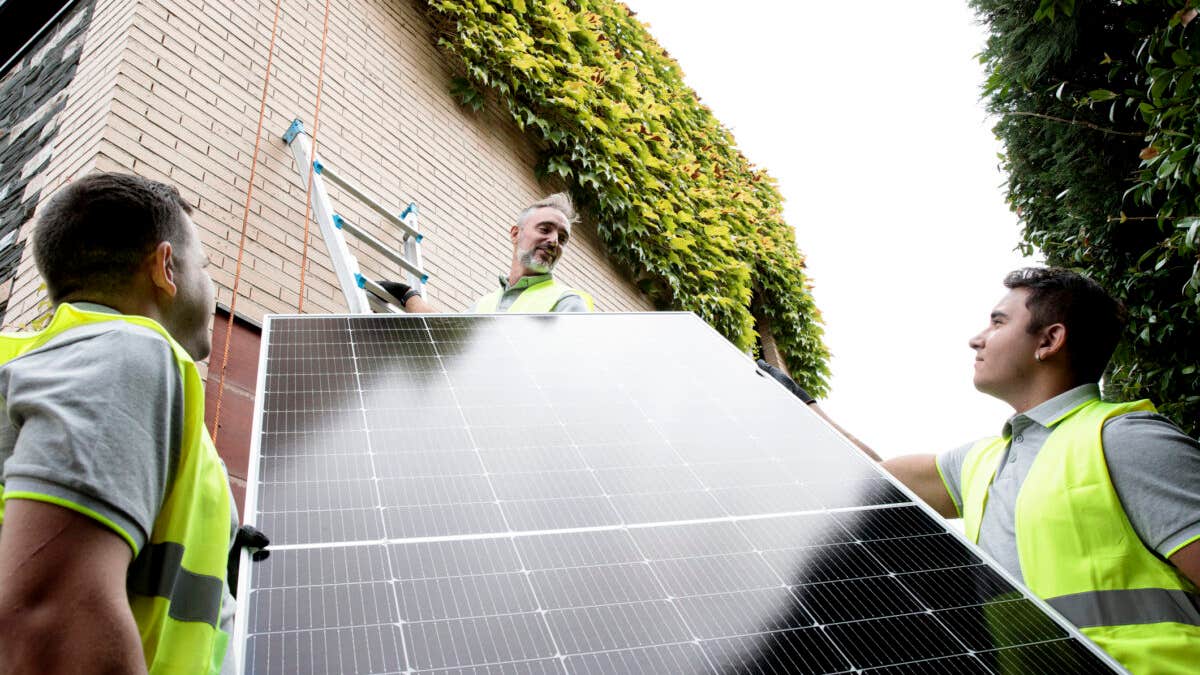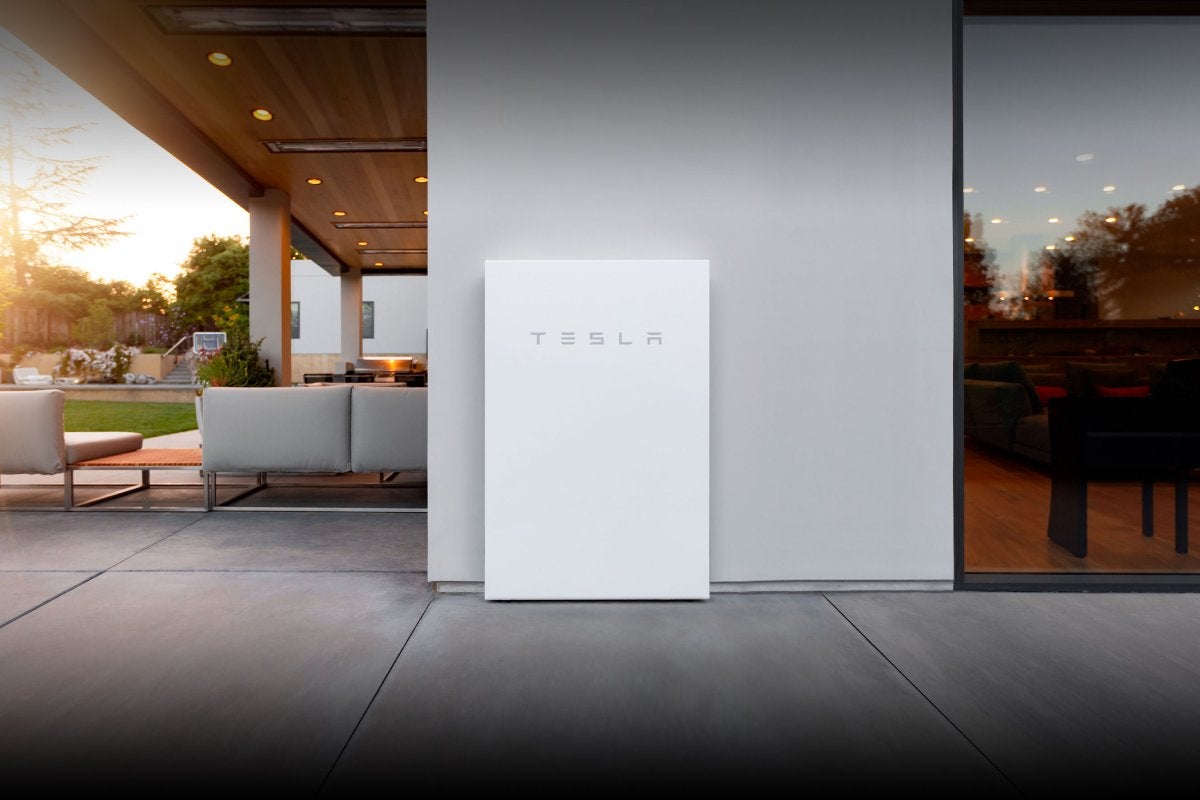Solar Installation Cost

Key takeaways
- The manual installation comprises 7 percent of the solar panel installation cost.
- The average US cost to install solar panels totals $31,558.
- Financial incentives are available to offset the overall price.
Many homeowners are motivated to transition to clean energy primarily due to potential energy bill savings and positive environmental impacts. However, the cost of installing solar panels is often a deterrent.
Can solar panels save you money?
Interested in understanding the impact solar can have on your home? Enter some basic information below, and we’ll instantly provide a free estimate of your energy savings.
Cost of solar panel installation
Solar installation costs have decreased by over 50 percent in the last decade. Data from the Lawrence Berkeley National Laboratory shows the average cost of installing solar panels in the US is about $31,558 before incentives. National Renewable Energy Laboratory (NREL) data shows installation labor makes up 7 percent of the total cost of solar, making the average cost of solar installation in the US about $2,209.
The more solar panels you install, the higher the installation cost because the process takes more time and labor. Depending on your location, the sales tax or hourly labor wage may be greater, increasing the total solar cost. Installation is one of the many factors that determine the overall price.
Factors affecting solar installation costs
The factors influencing the average cost of solar panel installation include hard and soft costs. Hard costs include the physical equipment like racking, panels, inverters and batteries. Soft costs include sales tax, installation labor, permitting, company overhead and marketing.
The total cost of a solar panel system for your home is not the same for everyone. The cost varies based on several factors, such as your location and solar array size. For example, if you live in an area with a sales tax exemption for solar, then that would not be a factor in the cost.
The following table breaks down the price for each component based on the national average cost of installing solar panels. You can use the national average as a benchmark when receiving solar quotes.
| Factor | Percentage | Cost |
|---|---|---|
| Mounting equipment | 13% | $4,102.54 |
| Inverter | 8% | $2,524.64 |
| Supply chain | 8% | $2,524.64 |
| Sales tax | 2% | $631.16 |
| Installation labor | 7% | $2,209.06 |
| Permits and inspection | 9% | $2,840.22 |
| Sales and marketing | 21% | $6,627.18 |
| Overhead | 12% | $3,786.96 |
| Module | 10% | $3,155.80 |
| Profit | 10% | $3,155.80 |
Solar financing and incentives
Installing solar panels is expensive. Financing options help reduce the upfront costs of solar and incentives offset the total price. A cash purchase will lead to the most significant return on investment with long-term ownership benefits. Paying for your solar panel system upfront is not a suitable option for every budget. Other financing options include loans, power purchase agreements (PPA) and solar leases. Ensure your chosen solar installer offers the financing option of your choice before signing a contract.
Loans
There are several different types of loans to consider for solar panel financing, including personal, FHA, Fannie Mae, home equity loans and home equity lines of credit (HELOCs). Each loan type has its own advantages and drawbacks and eligibility requirements may vary by lender or program. For example, personal loans offer fast access to cash without requiring collateral but may have a high-interest rate. FHA loans may have lower credit score requirements but you might pay additional fees and closing costs. Take time to consider all of your loan options to determine which is best for your budget.
Solar lease and PPA
If you are not interested in solar ownership and want to avoid high upfront costs, a PPA or solar lease is a suitable choice. You still power your home with solar energy but you make monthly payments to a solar company that owns and maintains the solar system. The key differentiator is what you pay for. In a PPA, you pay a fixed rate per kilowatt-hour (kWh) for solar energy generation, whereas, in a solar lease, you pay a fixed monthly rate. Review your lease and PPA contract before signing to ensure you know all of the details. Leases and PPAs typically last 25 to 30 years and may have significant fees if you try to cancel before the end of the contract period.
Incentives
Solar incentives, rebates and grants vary by state. The federal Residential Clean Energy Credit offers solar buyers in every state a 30 percent credit on their income tax return. The credit applies to the total cost of solar, including installation. The federal credit reduces the average cost of solar in the US to about $22,090.
Money-saving tips for solar panel installation
The cost of solar panel installation is a worthwhile investment if you want to save on your energy bills and reduce your carbon footprint. Here are some tips to get the best value on solar panels for your home.
- Get multiple quotes. Receive and compare several quotes for solar to compare the total cost, quality of products and warranty terms. If you find a company you like but their price is higher than another, ask if they will price match. Most companies want the sale and will take a lower commission to get your business. Know your budget and work with the solar company for the best price.
- Do your research. Review a solar company’s reputation, customer testimonials and any recent news mentions before making a decision. You want to work with a company with a reputation for quality customer service and highly rated performance.
- Avoid solar scams. Solar installation is expensive. If someone offers free solar panels or equipment, it is a scam. Do not offer any personal information until you have researched the company.
- Take advantage of incentives. Research incentives available in your area, such as federal, state and local tax credits, rebates and grants. Ask your solar company if they can help you find more ways to save on the total cost of installing solar panels.
- Optimize your solar system size. If you want to fully cover your home’s energy usage, you will need a larger solar array, which costs more. However, if you plan to cover only a portion of your energy usage with solar, installing a smaller array may be more cost-effective. If saving money on energy bills is your goal, ensure your solar panel system size will reduce expenses before signing a contract.
Getting quotes from multiple reputable installers is the best way to determine the cost of solar installation for your home. Solar companies can assess your specific situation, including location, roof repairs and potential obstructions, to provide an accurate estimate. Tailored quotes can help you make informed decisions about solar installation.
You may also like

Why is car insurance mandatory?





